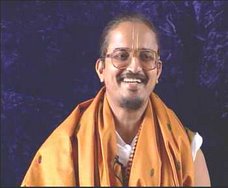Source: The Psychology of Yoga, from his notebook of 1911 - Sri Aurobindo
For this [reason], among other more important reasons, the Indian mind has thought it wise to give a firm and absolute authority to the Guru
As the Indian mind ... advances westward towards inevitable conquest, it must inevitably carry with it Yoga and Vedanta for its banners wherever it goes. But in order that the victory may not be slow, it is necessary that whatever India has to offer should be stated to the West in language that the West can understand... Europe will accept nothing which is not scientific... Undoubtedly, for practical purposes the West is right....
Indian knowledge possesses such a scientific basis, but ... expressed only in broad principles, compact aphorisms. The aphoristic method has great advantages. It prevents the mind from getting encrusted in details and fossilizing there. It allows a science to remain elastic and full of ever new potentialities for the discoverer. No doubt, it has disadvantages. It leaves much room for inaccuracy ...
For this [reason], among other more important reasons, the Indian mind has thought it wise to give a firm and absolute authority to the Guru and to insist that the disciple shall by precept and practice make his own all that the master has to teach him and so form and train his mind before it is allowed to play freely with his subject.
In Europe, the manual replaces the guru; the mind of the learner is rigidly bound by the written rule and detail not by the more adaptable and flexible word of the guru.
Chant the Mahamantra Nama kirtan :
Hare Rama Hare Rama Rama Rama Hare Hare
Hare Krishna Hare Krishna Krishna Krishna Hare Hare

No comments:
Post a Comment